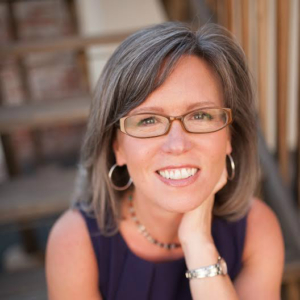Beyond Body Image
“What is health when we don’t have access to humanity and safety in our own bodies?” — Ashleigh Shackelford
In the work that I do in the world, I have a lot of opportunities to talk about body image. And I have to tell you, right now it bores me. It’s not that it doesn’t matter. In many ways, it matters more than it ever has. Our world desperately needs fully embodied humans. But here’s the problem: working with body image leaves US doing all the work. Especially those of us whose bodies don’t let them be seen as people first. And we’re not the ones who are broken.
It’s easy to fall into dichotomous ways of thinking that things are either individual or cultural. We are taught to focus on individual behaviors and feelings – like restricting, binging, and purging; fear of gaining weight, body shame, hating our bodies, and others.
Sure, eating disorders have a genetic component, but eating disorders and body image intersect with oppressions like racism, ableism, healthism, ageism, homophobia, transphobia, classism, and more. These impact our ability to inhabit our bodies.
Becky Thompson, in her book A Hunger So Wide And So Deep, writes: “Racism, poverty, homophobia or the stress of acculturation from immigration – those are the disorders. Anorexia, bulimia and compulsive eating are very orderly, sane responses to those disorders. I’m shifting the focus away from the notion of eating problems as pathology, and instead labeling forms of discrimination as pathological.”
I’m thinking a lot these days about how the questions we ask are often not the right questions. What we ask is: How do I feel better about my body?
The questions I’d rather hear us asking are: How connected are we to ourselves and what are the wedges that come between us and that connection? How do we improve our body image in a context of fat stigma? How do we resist a system that decides whose bodies are worthy and valuable?
I think we’d all agree that the narrow limits of acceptability we place on bodies is oppressive. But here’s the thing, it’s not possible to talk about one form of oppression without talking about all of the others because they are inextricably intertwined, in our culture, in our history, in our society, and on our bodies themselves.
We have to deconstruct racism, transphobia, and the gender binary. We have to deconstruct able-bodied privilege. We have to deconstruct all of the oppressions that determine the ways in which we value people, and whose bodies have more access to rights and resources.
Most of us don’t live in a culture that raises us to be fluid and fluent in the language of our bodies. We have been taught from the very beginning to accept diet culture uncritically – before we were able to give permission or before we could be in agreement that this is what we wanted to believe or how we wanted to live. We were never told about the consequences or the risks.
We have some collective unlearning to do. We don’t have to go along with a set of rules that we didn’t consent to. We can revoke our consent at any time.
There is a lot of talk right now about the need to resist. I love people’s stories of resistance. What would happen if we resisted all of THESE things?
- Shame
- The tendency to mute, to dilute, to shrink, to weaken, to silence our voice
- Patriarchy’s need to render us smaller
- Downplaying what we’re good at
- Editing everything we put into our mouths, as well as everything that comes out of it (from Desiree Adaway)
- The conditioning that propels us to look out and around before we’ve first heard our own truths
- Ideas and marketing that tells us that eating in a certain way will produce a certain body
- Others attempts to define us
- The prescription to play nice when that means silencing ourselves
- The feeling that we are in this alone
- All the ways we learn to coerce our bodies into things it doesn’t want or shapes it can’t be
- Investing in the outcome of weight, rather than the process of life
- Restrictions of all kinds: clothes that don’t fit, food we won’t allow, assumptions about who we are, and beliefs that are too limiting
- Suppression; to stop suppressing our voices, our natural weights, our appetites or our desires
I want to live in a world where all bodies are safe and welcome. I want a world where we don’t solve social issues by waging war on them. No war on drugs, no war on obesity, no war on refugees and immigrants – and certainly not waging war on our bodies or ourselves. In this world, we understand that war is not a path to peace, and hate is not a path to health. In this world, there is equal access to resources, food, nature, protection, shelter, and connection. And in the category of things there would be more than enough of: freedom, compassion, justice, and pie.





